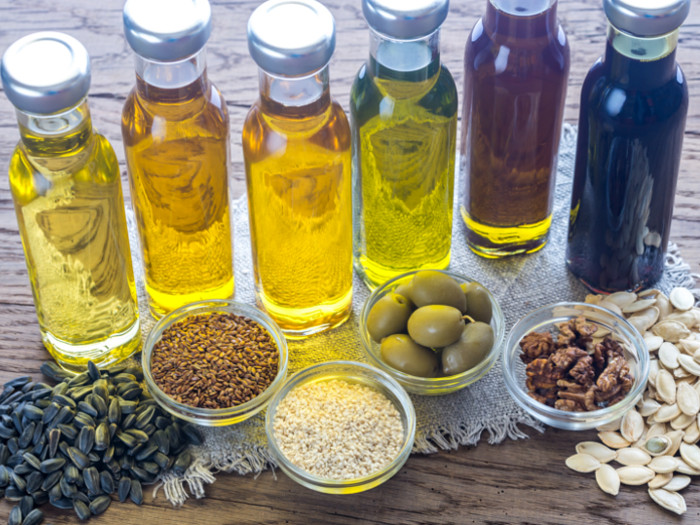Cooking With Olive Oil Vs Vegetable Oil
There is an epic struggle of olive oil vs vegetable oil, particularly between health-conscious chefs and other at-home cooks, s0 it's important to note the clear differences between them.
Olive Oil vs Vegetable Oil
While olive oil and vegetable oil are often used in similar ways in the culinary arts, there are some key differences that should be understood before you buy your next bottle.
Olive Oil
- Olive oil is regularly praised as being one of the healthiest cooking oil options, largely because of its high concentration of monounsaturated fats, which are considered "good" fats.
- Olive oil is derived directly from olives, and comes in various types, based on the level of chemical processing it has undergone.
- Extra virgin olive oil is the purest form, and thus the most sought after (and most expensive). [1]
- In terms of taste, olive oil does have a rather forward aroma and can change the flavor of delicate foods.
- It has been in wide use in certain parts of the world for the past 8,000 years!
- Olive oil also has a relatively low smoke point (375 degrees Fahrenheit for extra virgin olive oil), meaning that when you are searing or frying food, the oil will begin to burn off, adding a burnt or slightly charred flavor to the food, which many people want to avoid. Thus, olive oil is often turned to for low-heat preparations, or as a salad dressing or drizzle for a pizza or pasta. [2]
- You can store olive oil for up to one year before there is any impact on the taste of quality, particularly if it is kept in a cool, dry cabinet.
- There are approximately 120 calories in one tablespoon of olive oil.

In small amounts, vegetable oils are healthy, as they contain fats that are essential in our diets. Photo Credit: Shutterstock
Vegetable Oil
- Vegetable oil is actually a broad classification that includes a number of different oils, including coconut oil, safflower oil, canola oil, grapeseed oil and palm oil, among others.
- These vegetable oils contain a variable amount of fats, with coconut oil having the most saturated fat (92%), and canola oil having the least (6%). [3]
- When you don't have olive oil on hand, many people turn to vegetable oils, since they are not only less expensive, but also more versatile in cooking.
- Vegetable oils tend to have much higher smoke points than olive oil, so they can be used for high-heat recipes without smoking and changing the flavor of the food. [4]
- There is some evidence that vegetable oil has been produced from various plants for at least 4,000-5,000 years.
- Again, given the range of properties in the oils that can be considered "vegetable" oils, the caloric content also fluctuates, but generally speaking, vegetable oil also has an average of 120 calories per tablespoon.
- You can store an opened bottle of vegetable oil for up to 1 year before it begins to lose flavor and quality. If you store an unopened bottle in a cool, dry, and dark place, it can remain viable for up to two years.
Olive oil is also praised for its unique antioxidant content and the potential health benefits it can have when topically applied. However, this is less common in vegetable oils, particularly canola and palm oil, which are largely relegated to culinary applications, along with industrial and some medicinal uses. [5]

About the Author
John Staughton is a traveling writer, editor, publisher and photographer with English and Integrative Biology degrees from the University of Illinois in Champaign-Urbana (USA). He co-founded the literary journal, Sheriff Nottingham, and now serves as the Content Director for Stain'd Arts, a non-profit based in Denver, Colorado. On a perpetual journey towards the idea of home, he uses words to educate, inspire, uplift and evolve.
Cooking With Olive Oil Vs Vegetable Oil
Source: https://www.organicfacts.net/olive-oil-vs-vegetable-oil.html
Posted by: smithpren1947.blogspot.com

0 Response to "Cooking With Olive Oil Vs Vegetable Oil"
Post a Comment